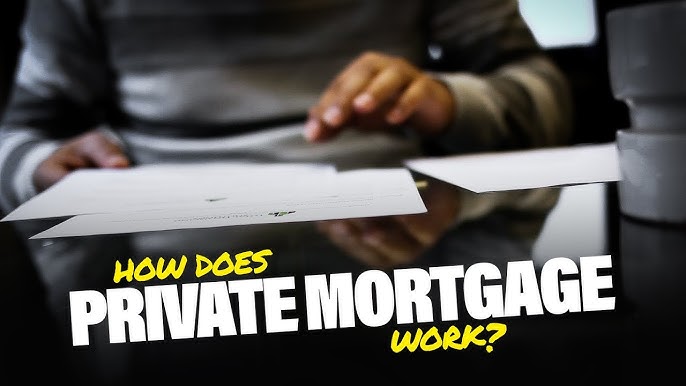All About Mortgage Lending: Trick Insights for Homebuyers and Investors
Mortgage lending is a complicated landscape, using various financing kinds tailored to varied debtor demands. Understanding the nuances of conventional, FHA, VA, and USDA finances can considerably affect property buyers and investors alike. In addition, credit report ratings play a critical role in protecting desirable rates of interest. As the home loan application process unfolds, several key variables enter into play, affecting both approval and terms. What are the essential steps and techniques to browse this elaborate procedure properly?
Recognizing Different Kinds Of Mortgage Loans
Recognizing the numerous kinds of mortgage loans is vital for potential homebuyers, as each choice deals with different economic situations and demands. Traditional lendings, typically provided by exclusive loan providers, need a higher credit rating and frequently involve a deposit of a minimum of 20%. Conversely, FHA loans are government-backed and developed for new purchasers, permitting lower credit score ratings and smaller sized deposits. VA finances, offered to veterans and energetic military participants, use beneficial terms and no down payment requirement. In addition, USDA loans support rural buyers with low to moderate earnings, providing absolutely no deposit alternatives. Fixed-rate home loans keep consistent regular monthly repayments over the lending term, while adjustable-rate home loans start with reduced rates that can vary. By understanding these differences, homebuyers can make enlightened decisions tailored to their monetary scenarios and long-lasting objectives. Selecting the appropriate mortgage kind is a considerable action in the home-buying procedure.
The Significance of Credit Report in Home Loan Authorization
Debt scores play a crucial function in the home mortgage authorization process, offering as a key indicator of a consumer's credit reliability. A greater credit history can cause much more desirable rate of interest, considerably affecting the overall price of a home loan. Recognizing the principles of debt ratings and discovering methods to boost them can greatly benefit potential property buyers.

Credit History Fundamentals
A strong credit history plays a crucial function in the home loan authorization process, influencing lenders' assumptions of a consumer's dependability. Credit report, generally varying from 300 to 850, reflect a person's credit reliability based upon their economic history, consisting of repayment background, credit rating application, length of credit history, kinds of charge account, and recent inquiries. Lenders examine these ratings to evaluate the threat related to lending money. Typically, a higher credit report suggests reduced danger, bring about a smoother approval procedure. Homebuyers and capitalists ought to frequently inspect their credit rating records for mistakes and take steps to boost their scores, such as paying bills on time and reducing outstanding financial obligations. A solid credit report is a crucial asset in protecting favorable home mortgage terms.
Influence On Rate Of Interest Rates
Rates of interest on home mortgages are significantly influenced by the consumer's credit rating, which works as a crucial indication of economic dependability. Lenders examine credit rating scores to evaluate the threat connected with prolonging a car loan. Private Mortgage Lenders Savannah GA. Higher credit score scores generally cause lower rate of interest prices, as they recommend that customers are more likely to settle their financial debts. Conversely, lower credit history may lead to higher prices, reflecting the raised danger regarded by loan providers. This relationship highlights the value of keeping a solid credit history profile for possible consumers. Understanding just how credit report affect rate of interest can equip buyers and investors to make informed decisions, potentially conserving them substantial amounts over the life of their home loan

Improving Your Credit History
Homebuyers keen on protecting beneficial mortgage terms must identify the crucial function of credit report in the approval process. A greater credit report frequently brings about reduced rate of interest, which can significantly decrease the total price of a home mortgage. Lenders analyze credit rating to assess a candidate's economic dependability, affecting their choice to accept or deny a home loan application. To boost their scores, possible customers should focus on timely expense repayments, minimizing impressive financial debts, and avoiding brand-new debt inquiries. Frequently assessing credit score records for mistakes can likewise aid keep accuracy. By taking these steps, property buyers can improve their credit reliability, inevitably enhancing their possibilities of acquiring a mortgage with desirable problems.
Secret Aspects Influencing Rate Of Interest
Exactly how do numerous economic aspects form the landscape of mortgage rate of interest? Several crucial elements play a crucial duty in identifying these rates. The Federal Get's financial policy greatly affects rate of interest prices; when the Fed elevates or decreases benchmark prices, home loan prices commonly follow match. In addition, rising cost of living trends impact the buying power of consumers, leading lenders to readjust prices appropriately. Economic growth indications, such as work prices and GDP growth, additionally impact rate of interest; a robust economy typically causes greater rates due to increased need for loans. Additionally, the bond market acts as a vital benchmark; when bond returns rise, home loan rates often tend to raise as well. Specific consumer variables, consisting of credit scores score and debt-to-income proportion, can influence the certain rate used. Comprehending these characteristics assists property buyers and capitalists make educated decisions in the home loan market
The Home Mortgage Application Process Discussed
What actions are involved in safeguarding a home mortgage? The mortgage application process begins with the debtor event essential documentation, such as income declarations, income tax return, and credit More about the author report background. Next off, the borrower picks a loan provider and sends an official application, giving all needed info. The lending institution after that performs a credit check and evaluates the consumer's financial stability.Following this, the lending institution will certainly execute an evaluation of the property to identify its market worth. Once the residential property is evaluated, the loan provider assesses the application, including the consumer's economic history and the evaluation results, to make a decision whether to approve or reject the lending. If approved, the customer gets a loan quote detailing the terms and expenses connected with the mortgage.Finally, the borrower evaluations and indications the closing papers, officially safeguarding the home loan. Recognizing this process is necessary for prospective property owners as they browse the intricacies of mortgage borrowing.
Tips for First-Time Homebuyers
Novice buyers deal with a distinct collection of challenges when entering the genuine estate market. Recognizing the various sorts of home loans offered and successfully budgeting for their purchase are necessary action in the homebuying journey - Private Mortgage Lenders Savannah GA. By outfitting themselves with this understanding, they can make informed decisions that align with their economic goals
Recognizing Mortgage Kinds
Steering the world of home loan types can be daunting for those going into the housing market for the very first time. Understanding the different choices is important for first-time buyers. Fixed-rate mortgages offer predictable monthly settlements, making budgeting simpler. Alternatively, variable-rate mortgages (ARMs) commonly begin with reduced rates that can vary gradually, which might be enticing however brings dangers. Government-backed fundings, such as FHA and VA lendings, offer extra support for eligible customers, often needing lower deposits. Furthermore, novice buyers might explore conventional loans that abide by particular requirements. Each mortgage type has one-of-a-kind advantages and drawbacks, so it is crucial for beginners to research thoroughly and assess their lasting monetary goals before choosing.
Budgeting for Your Purchase
When starting on the trip of homeownership, effective budgeting is crucial for possible buyers to guarantee financial security throughout the process. First-time homebuyers should begin by evaluating their earnings and costs, guaranteeing they designate funds for a down settlement, closing expenses, and moving expenditures. Developing a month-to-month budget that includes home mortgage settlements, real estate tax, insurance policy, and maintenance expenses is necessary. Buyers need to also consider possible changes in rate of interest and market conditions. Developing an emergency fund can offer a security net for unforeseen expenditures. In addition, purchasers might gain from seeking advice from economic advisors or using on the internet budgeting tools to acquire a more clear understanding of their monetary circumstance. Cautious preparation ultimately causes notified choices and a successful home purchase.
Financing Options genuine Estate Investors
What financing choices are readily available to investor seeking to expand their profiles? Financiers can explore a number of avenues. Conventional mortgages remain a prominent selection, normally requiring a larger deposit and great credit score. Conversely, investors may consider hard cash fundings, which are temporary fundings safeguarded by actual estate, supplying fast access to capital but at higher passion rates.Another option is private funding, where investors can borrow from buddies or family members, usually with even more versatile terms. For those seeking to fund numerous residential or commercial properties, portfolio loans might be suitable, permitting numerous buildings to be packed under one mortgage.Additionally, genuine estate crowdfunding systems have emerged, enabling investors to pool resources with others for home financial investments. Leveraging equity in existing properties via cash-out refinancing can offer funds for brand-new financial investments. Each option has its benefits and risks, needing careful consideration based upon private investor goals.
Regularly Asked Questions
What Are the Typical Closing Prices Connected With a Home mortgage?
Closing expenses typically include evaluation fees, title insurance policy, attorney costs, and origination charges. These costs generally vary from 2% to 5% of the funding amount, influencing the total financial dedication for the click buyer.
For how long Does It Require To Shut on a Home mortgage?
The duration to close on a home mortgage commonly varies from 30 to 45 days, depending upon different elements, including lender efficiency, documentation completeness, and market anchor conditions, which can considerably affect the general timeline.

Can I Refinance My Mortgage Later On?
Yes, refinancing a home loan later is possible. Home owners typically pursue re-financing to protect reduced passion prices, minimize regular monthly settlements, or gain access to home equity. Nonetheless, they should consider associated fees and their economic scenario before proceeding.

What Occurs if I Miss a Home Mortgage Payment?
If a home loan repayment is missed, the borrower might encounter late charges, potential damage to their credit history score, and feasible repossession proceedings. Lenders generally use elegance durations, but regular missed out on payments can lead to significant repercussions.
Are There Penalties for Settling My Home Loan Early?
Several loan providers impose prepayment fines for early mortgage payoff, potentially costing consumers additional costs. Terms vary substantially amongst lenders, so it is crucial for customers to examine their home loan agreements prior to making very early repayments.